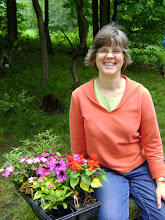
As a child of Lutheran missionaries, I can remember watching my father demonstrate to rapt American congregations how the Malays took a bath by way of a roadside spigot. With a sarong hoisted up and held between gritted teeth, he explained that the dirty sarong served as shower curtain while the bather took a bucket of water and dumped it over him or her. Then the clean sarong was shimmied up the dried bather under the old sarong and deftly secured. After amazing or amusing congregations with this bathing demonstration, my parents would’ve sung “Jesus Loves Me” in Chinese and showed slides of Chinese babies in baptismal gowns and Indian brides in dazzling saris. In this way, my parents, Rev. Robert and Shirley Kocher(pictured above with me), kept Nebraskan congregations connected to the sights and sounds of Malaysia where they served from 1958 to 1972.
This was an era when neither Internet nor 24-hour TV news brought the world to the average American household. My parents and many other missionaries served as a live connection between foreign lands with roadside bathers to the U.S. congregations who would’ve been stunned to find that one Lutheran family in Malaysia consisted of an Indian household with two women married to the same man and 16 children between the two of them. This connection was absolutely vital in sustaining U.S. support. More importantly, this connection was vital in helping American congregations realize their neighbors lived in Tanzania, Singapore, Thailand, India, Taiwan, Argentina, Malaysia, and so on.
By the early 1980s, that connection weakened as missionary furloughs were reduced from one or two years to two months. And then that connection ended altogether.
Enter Bishop Richard Jessen after a newly merged Church who sought to build a new kind of connection. As a part of Bishop Jessen’s Global Missions Committee, my parents helped to establish two overseas companion synods, one in Argentina and one in Tanzania. Instead of sending missionaries into the field, the companion relationship set up exchanges—pastor exchanges and teacher exchanges. Instead of meeting others through slide shows and amusing bathing demonstrations, members of Nebraska congregations now go to Tanzania and Argentina themselves.
When I asked Pastor Martin Russell in the fall of 2008 if anyone in Tanzania would be interested in having me teach English for a year, I had no idea I was tapping into the fruits of a garden long cultivated by my parents and countless others. As of August 2009, I will be teaching Communication Skills in the English Language at Stefano Memorial College University in Moshi for six different programs. I also hope to connect my new students in Tanzania through email to students at Midland Lutheran College where I currently teach writing. In doing so, it becomes clear to me that the beauty of this new garden, tilled and cultivated by the wisdom of many, invites many more gardeners into the garden.
This was an era when neither Internet nor 24-hour TV news brought the world to the average American household. My parents and many other missionaries served as a live connection between foreign lands with roadside bathers to the U.S. congregations who would’ve been stunned to find that one Lutheran family in Malaysia consisted of an Indian household with two women married to the same man and 16 children between the two of them. This connection was absolutely vital in sustaining U.S. support. More importantly, this connection was vital in helping American congregations realize their neighbors lived in Tanzania, Singapore, Thailand, India, Taiwan, Argentina, Malaysia, and so on.
By the early 1980s, that connection weakened as missionary furloughs were reduced from one or two years to two months. And then that connection ended altogether.
Enter Bishop Richard Jessen after a newly merged Church who sought to build a new kind of connection. As a part of Bishop Jessen’s Global Missions Committee, my parents helped to establish two overseas companion synods, one in Argentina and one in Tanzania. Instead of sending missionaries into the field, the companion relationship set up exchanges—pastor exchanges and teacher exchanges. Instead of meeting others through slide shows and amusing bathing demonstrations, members of Nebraska congregations now go to Tanzania and Argentina themselves.
When I asked Pastor Martin Russell in the fall of 2008 if anyone in Tanzania would be interested in having me teach English for a year, I had no idea I was tapping into the fruits of a garden long cultivated by my parents and countless others. As of August 2009, I will be teaching Communication Skills in the English Language at Stefano Memorial College University in Moshi for six different programs. I also hope to connect my new students in Tanzania through email to students at Midland Lutheran College where I currently teach writing. In doing so, it becomes clear to me that the beauty of this new garden, tilled and cultivated by the wisdom of many, invites many more gardeners into the garden.

I will be praying for you as you serve in Tanzania, Jeanne! Deb (Stanton) Schmidt
ReplyDeleteHello Jeanne. What a wonderful blog article! Being a gardener myself, your theme really hit home. We look forward to meeting you when you come to TZ in August. Safari njema (safe travels). Pastor JMe Lowden, ELCA Regional Representative to Tanzania & Rwanda
ReplyDeleteArusha, Tanzania
ALEX puts its this way,
ReplyDeleteWaoo what a blessing to Tanzania! Jeanne GOD will lead you through your mission in TZ, we love you. our hearts are felt with warm welcoming and tradition loving conducive domestic charming way of living with such people like you. Cultivate our gardens your way and God will pay any one who takes care of his creations.
Be Blessed.
Alex, I live in Moshi Tanzania I love visitors like you. I take them to ma home, KARIBU SANA (WELCOME)
jarzier83@yahoo.com.